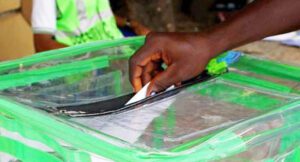Nigeria’s infrastructure crumbling before corruption: Formation of 2023 government must take cognizance
That the fate of Nigeria’s economy is still bleak with huge infrastructure deficit remains a lamentation. The question of the poor infrastructure profile may not be justifiably said to be largely a case of paucity of fund, but rather, largely one of corruption inclinations. The abandonment of projects, diversion of funds meant for them, misappropriation and mismanagement, among several devious means of dubious strategies have been factors of deforming strings which have left the Country with widening deficits, against covering up prevailing gaps at any particular time.
Failing of projects without satisfying durability, have been on rolling circles with the regurgitating culture of continuous earmarking of funds for reconstruction of projects, which funds though have been earlier made available for their execution, but yet keep on attracting new provisions – a syndrome that is linkable to the prevailing order of mismanagement, diversion and misappropriation of funds – as cases attributable to corruption inclinations.
The troubles have left the Country with deficient ills which are defective and pathological to the economy’s well being. Recently, the state of the Country’s economy has so waned that the socio-economic conditions set before the people have begun to spring forth wild reactions.
The Lagos Chamber of Commerce and Industry (LCCI), again recently, attributed the pathology of corruption and poor infrastructure as the greatest socio-economic development challenge for Nigeria. At the 2022 ICTEL EXPO held in Lagos, last week, with the theme, “Ensuring Efficient Digital Infrastructure in Nigeria,” the President, LCCI, Dr Michael Olawale-Cole, recalled that the Federal government had inaugurated the National Council on Infrastructure recently with a plan of doubling Nigeria’s infrastructure stock of the Gross Domestic Product (GDP) from the prevailing 35 per cent to about 70 per cent. However, he noted that, “the issue has always not been with good initiatives, but in their implementation. That remains a big concern to us as a Chamber, hence the desire to make a difference with the 2022 ICTEL EXPO.”
The LCCI president who emphasised the importance of investing in the right digital infrastructure, said, “The 2022 ICTEL EXPO is giving deserved focus to Digital Infrastructure because, over the decades, next to corruption, poor infrastructure is Nigeria’s greatest socio-economic development challenge. The ones commonly focused on are power, roads, and water. We dare say however that, as critical as the listed ones and indeed others not listed are, if Nigeria gets Digital Infrastructure right, the benefits to the nation’s ICT and Telecommunication sectors and on government’s digital economy agenda would be enormous.”
Corruption has proven its devious killing venom. In Nigeria, it has overpowered the fortune of the Country, leaving it debilitated with wobbling impacts. The forces of deficiencies from the pathological impacts have brought an economy which is meant to be burgeoning to it heels, headed for the precipice into the mire of drowning. Among others, the poor state of infrastructure informed largely by corruption, has constituted forces gripping the economy with entanglements, which have left it with struggles of closer liability to backward movement against forward drive.
As the political season to set in tune the background for another administration has commenced, it is instructive that whatever party from which the Government would be constituted, the issue of addressing corruption holistically must take a centre stage. It is reminiscent that at the onset, the present administration had jingled fight against corruption as a centre pillar of its campaign movement, but yet have flattened from any record to give a close resemblance to the noised proclamations.
It is pertinent for all parties and their candidates to take deep turn to strategic models to tackle corruption, which upon assumption of office, would systematically set in tune the dawn of a new era on a path to drive the system away from the messy entanglements which the scourge of corruption has gripped her economy in.
It is indisputable that without having at the arch of its thrust of concerns, systemic approaches to tackle corruption, any government which comes in may end up groping around with frustration, as the case may have rightly been observed.




